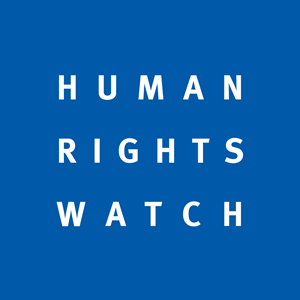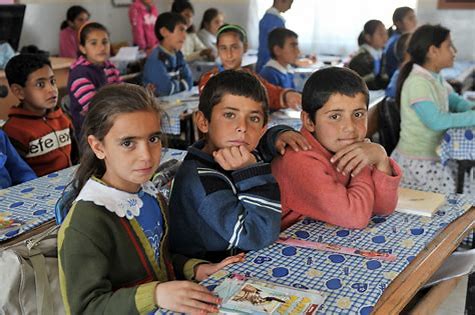During breaks between classes, Rodin reads chat messages from his classmates and idly doodles on the virtual whiteboard that his teacher leaves open. He watches his best friend draw a cat; he thinks his friend is much better at drawing than he is. Later in the afternoon, Rodin opens up a website to watch the nationally televised math class for that day. At the end of each day, he posts a picture of his homework to his teacher’s social media page.
Unbeknownst to him, an invisible swarm of tracking technologies surveil Rodin’s online interactions throughout his day. Within milliseconds of Rodin logging into class in the morning, his school’s online learning platform begins tracking Rodin’s physical location—at home in his family’s living room, where he has spent most of his days during the pandemic lockdown. The virtual whiteboard passes along information about his doodling habits to advertising technology (AdTech) and other companies; when Rodin’s math class is over, trackers follow him outside of his virtual classroom and to the different apps and sites he visits across the internet. The social media platform Rodin uses to post his homework silently accesses his phone’s contact list and downloads personal details about his family and friends. Sophisticated algorithms review this trove of data, enough to piece together an intimate portrait of Rodin in order to figure out how he might be easily influenced.
Neither Rodin nor his mother were aware that this was going on. They were only told by his teacher that he had to use these platforms every day to be marked as attending school during the Covid-19 pandemic.[1]
This report is a global investigation of the education technology (EdTech) endorsed by 49 governments for children’s education during the pandemic. Based on technical and policy analysis of 163 EdTech products, Human Rights Watch finds that governments’ endorsements of the majority of these online learning platforms put at risk or directly violated children’s privacy and other children’s rights, for purposes unrelated to their education.
The coronavirus pandemic upended the lives and learning of children around the world. Most countries pivoted to some form of online learning, replacing physical classrooms with EdTech websites and apps; this helped fill urgent gaps in delivering some form of education to many children.
But in their rush to connect children to virtual classrooms, few governments checked whether the EdTech they were rapidly endorsing or procuring for schools were safe for children. As a result, children whose families were able to afford access to the internet and connected devices, or who made hard sacrifices in order to do so, were exposed to the privacy practices of the EdTech products they were told or required to use during Covid-19 school closures.
Human Rights Watch conducted its technical analysis of the products between March and August 2021, and subsequently verified its findings as detailed in the methodology section. Each analysis essentially took a snapshot of the prevalence and frequency of tracking technologies embedded in each product on a given date in that window. That prevalence and frequency may fluctuate over time based on multiple factors, meaning that an analysis conducted on later dates might observe variations in the behavior of the products.
We think our kids are safe in school online. But many of them are being surveilled, and parents have often been kept in the dark. In the rush to connect kids to virtual classrooms during the Covid-19 pandemic, many governments failed to check that their education technology (EdTech) recommendations were safe for children to use. Kids are priceless, not products.
Of the 163 EdTech products reviewed, 145 (89 percent) appeared to engage in data practices that put children’s rights at risk, contributed to undermining them, or actively infringed on these rights. These products monitored or had the capacity to monitor children, in most cases secretly and without the consent of children or their parents, in many cases harvesting data on who they are, where they are, what they do in the classroom, who their family and friends are, and what kind of device their families could afford for them to use.
Most online learning platforms installed tracking technologies that trailed children outside of their virtual classrooms and across the internet, over time. Some invisibly tagged and fingerprinted children in ways that were impossible to avoid or get rid of—even if children, their parents, and teachers had been aware and had the desire and digital literacy to do so—without throwing the device away in the trash.
Most online learning platforms sent or granted access to children’s data to third-party companies, usually advertising technology (AdTech) companies. In doing so, they appear to have permitted the sophisticated algorithms of AdTech companies the opportunity to stitch together and analyze these data to guess at a child’s personal characteristics and interests, and to predict what a child might do next and how they might be influenced. Access to these insights could then be sold to anyone—advertisers, data brokers, and others—who sought to target a defined group of people with similar characteristics online.
Children are surveilled at dizzying scale in their online classrooms. Human Rights Watch observed 145 EdTech products directly sending or granting access to children’s personal data to 196 third-party companies, overwhelmingly AdTech. Put another way, the number of AdTech companies receiving children’s data was discovered to be far greater than the EdTech companies sending this data to them.
Some EdTech products targeted children with behavioral advertising. By using children’s data—extracted from educational settings—to target them with personalized content and advertisements that follow them across the internet, these companies not only distorted children’s online experiences, but also risked influencing their opinions and beliefs at a time in their lives when they are at high risk of manipulative interference. Many more EdTech products sent children’s data to AdTech companies that specialize in behavioral advertising or whose algorithms determine what children see online.
It is not possible for Human Rights Watch to reach definitive conclusions as to the companies’ motivations in engaging in these actions, beyond reporting on what we observed in the data and the companies’ and governments’ own statements. In response to requests for comment, several EdTech companies denied collecting children’s data. Some companies denied that their products were intended for children’s use, or stressed that their virtual classroom pages for children’s use had adequate privacy protections, even if Human Rights Watch’s analysis found that pages adjacent to the virtual classroom pages (such as the login page, home page or adjacent page with children’s content) did not. AdTech companies denied knowledge that the data was being sent to them, indicating that in any case it was their clients’ responsibility not to send them children’s data.
Governments bear the ultimate responsibility for failing to protect children’s right to education. With the exception of a single government—Morocco—all governments reviewed in this report endorsed at least one EdTech product that risked or undermined children’s rights. Most EdTech products were offered to governments at no direct financial cost to them; in the process of endorsing and ensuring their wide adoption during Covid-19 school closures, governments offloaded the true costs of providing online education onto children, who were unknowingly forced to pay for their learning with their rights to privacy, access to information, and potentially freedom of thought.
Many governments put at risk or violated children’s rights directly. Of the 42 governments that provided online education to children by building and offering their own EdTech products for use during the pandemic, 39 governments produced products that handled children’s personal data in ways that risked or infringed on their rights. Some of these governments made it compulsory for students and teachers to use their EdTech product, not only subjecting them to the risks of misuse or exploitation of their data, but also making it impossible for children to protect themselves by opting for alternatives to access their education.
Children, parents, and teachers were denied the knowledge or opportunity to challenge these data surveillance practices. Most EdTech companies did not disclose their surveillance of children through their data; similarly, most governments did not provide notice to students, parents, and teachers when announcing their EdTech endorsements.
In all cases, this data surveillance took place in virtual classrooms and educational settings where children could not reasonably object to such surveillance. Most EdTech companies did not allow their students to decline to be tracked; most of this monitoring happened secretly, without the child’s knowledge or consent. In most instances, it was impossible for children to opt out of such surveillance and data collection without opting out of compulsory education and giving up on formal learning altogether during the pandemic.
Remedy is urgently needed for children whose data were collected during the pandemic and remain at risk of misuse and exploitation. Governments should conduct data privacy audits of the EdTech endorsed for children’s learning during the pandemic, remove those that fail these audits, and immediately notify and guide affected schools, teachers, parents, and children to prevent further collection and misuse of children’s data.
In line with child data protection principles and corporations’ human rights responsibilities as outlined in the United Nations Guiding Principles on Business and Human Rights, EdTech and AdTech companies should not collect and process children’s data for advertising. Companies should inventory and identify all children’s data ingested during the pandemic, and ensure that they do not process, share, or use children’s data for purposes unrelated to the provision of children’s education. AdTech companies should immediately delete any children’s data they received; EdTech companies should work with governments to define clear retention and deletion rules for children’s data collected during the pandemic.
As more children spend increasing amounts of their childhood online, their reliance on the connected world and digital services that enable their education will continue long after the end of the pandemic. Governments should develop, refine, and enforce modern child data protection laws and standards, and ensure that children who want to learn are not compelled to give up their other rights in order to do so.
Children should be actively consulted throughout these processes, helping to build safeguards that protect meaningful, safe access to online learning environments that provide the space for children to develop their personalities and their mental and physical abilities to their fullest potential.


